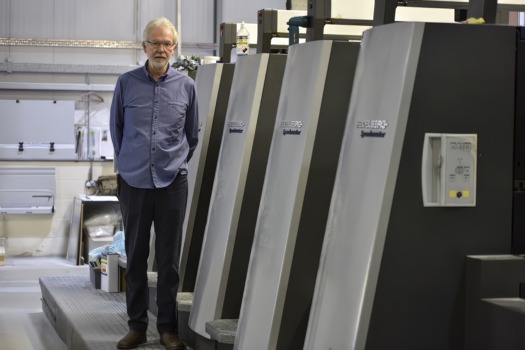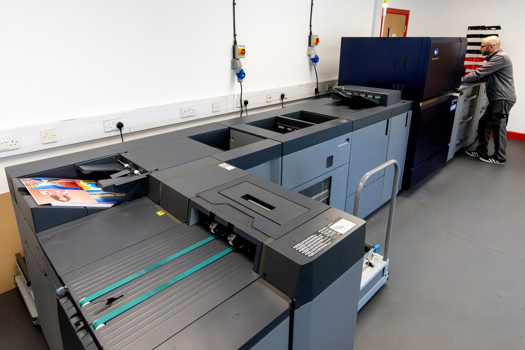"This is great news and comes at a good time for us," said business development manager Jonny Macneal.
"We had been grant funded up to this point, but this funding now puts us in the position to be able to commercialise the technology and continue growing our customer base and continue with the trials we have in the pipeline."
The technology works by using intelligent pigments, developed by Insignia, which are turned into a plastic pellet 'master batch' that is then co-extruded in a triple-layer plastic film. The film is then incorporated into a label and applied to conventional modified-atmosphere packaging.
The label is ‘charged’ when the CO2 is added and the pack is sealed. When the pack is opened and the CO2 escapes, a gas diffusion reaction begins and the colour starts to change over a pre-determined period, indicating to the consumer when the product is still safe to eat or needs to be discarded. In principle, it would also work if the product had a faulty or broken seal, prior to purchase.
The company is currently working with an unnamed Scottish label manufacturer to develop the technology applications for initial trial products, with a view to develop products on a manufacturing scale in the near future.
According to Insignia, an estimated 18m tonnes of edible food is sent to landfill every year. It believes its indicator label technology could help to reduce this.
This latest round of funding was led by Equity Gap, in partnership with Scottish Investment Bank, Highland Venture Capital, the University of Strathclyde and a number of private investors.
The company was formed last summer following the merger of Dundee-based intelligent ink developer Insignia Pack and Novas Technologies, which was a 'spin-out' company from a plastics proof-of-concept project at the University of Strathclyde’s Department of Pure and Applied Chemistry, led by Dr Graham Skinner.
The company has already secured trials with one (possibly two) UK supermarket groups and three in the US. The first trials are due to be on supermarket shelves in Q1 2014. The trials will be focused on supermarket own-label products.
"We would like to think that if trials went well, we’re in the position to scale up to full production very quickly and work with the retailers, and their supply chains, to get a commercial product on the shelves as soon as possible," said Macneal.
Insignia has seven staff, three of whom hold PhDs in chemistry, working on the existing products and developing new applications and products.
The company is initially targeting food production and processing applications, but is already planning to expand into the healthcare, cosmetics and pharmaceutical sectors. It’s first commercial product, utilising a similar CO2 label technology, is already being used by a Californian company to monitor the freshness of soft fruit during transit by detecting CO2 levels.
Insignia chief executive David Kilshaw said: "This investment provides the necessary funding to drive the development programme being carried out by our technical team, both with regards to the existing technologies, as well as future research projects."









